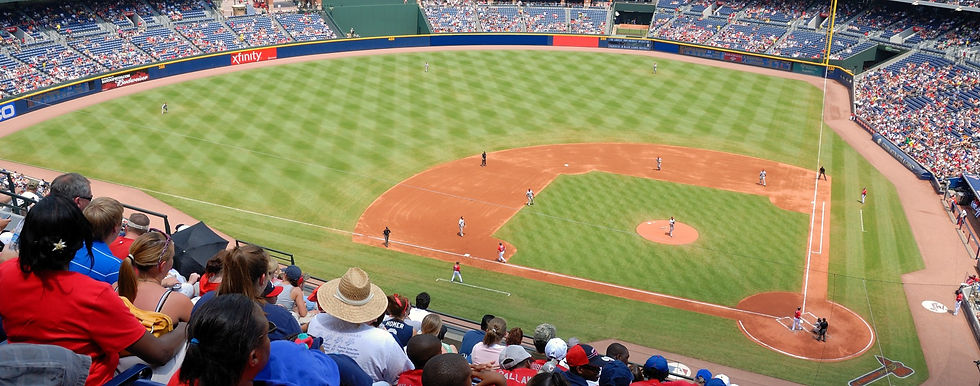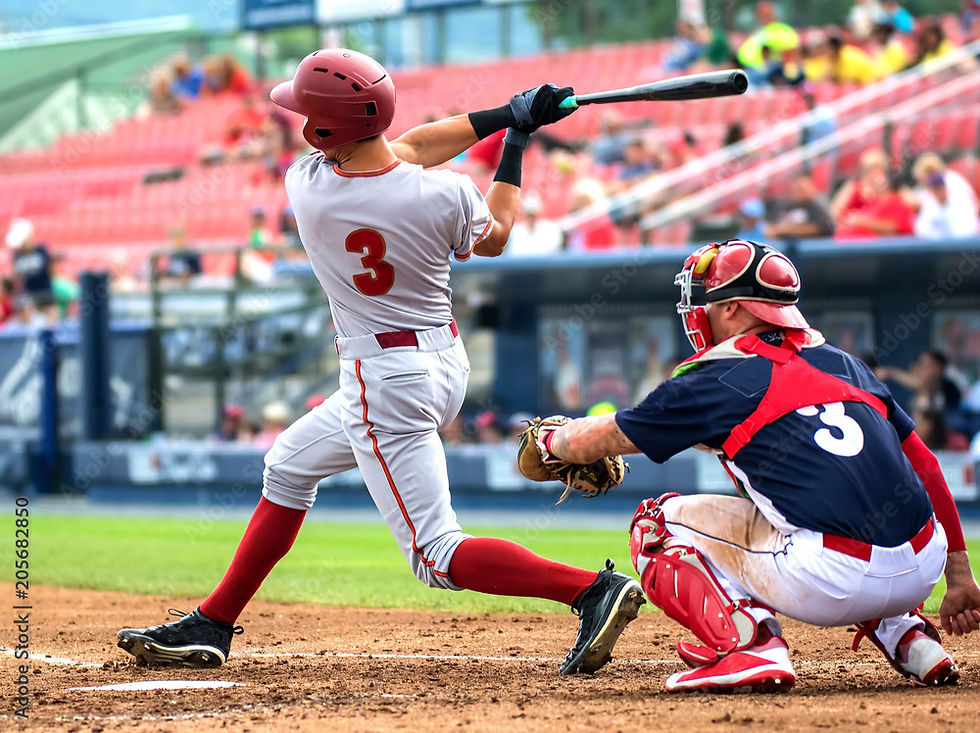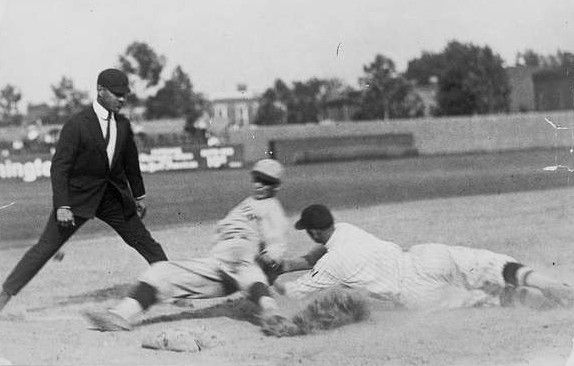There's never a dull moment in baseball. I've never understood people who complain that it's boring. They just haven't been paying attention.

It's just such people whose complaints have brought about unnecessary changes to the game that once was known as the American pastime. They're also the ones who, though attending an occasional game, spend most of their time running back and forth to the restrooms or concession stands and obstructing the view of those who are there to watch the game instead of actually watching the game.
Although I have been an avid baseball fan since childhood, it wasn't until I took a college class under Mr. Joe Elmer that I came to understand this important truth.
To prove my point that baseball is anything but boring, let's examine the game more closely.
You have 18 active players, nine per team, with 16 others on each team held in reserve on the dugout bench or in the bullpen. Although many spectators see only the current man at the plate, the opposing pitcher, and the catcher as being active, all the other players are actively engaged in the game on every pitch. No one is--or at least should be--idle.


Baseball is a mind game as much as it is a physical contest. The pitcher and the catcher are playing a cat-and-mouse game with the batter. They are trying to throw him a pitch he doesn't expect. Simultaneously, he is trying to anticipate the kind of pitch he is likely to get and how he will address it. Not only must the pitcher make his pitch effective but also, if a runner is on third base and the ball gets past the catcher, the pitcher must back up the plate, lest a run score.
Every position player is anticipating what he must do if the ball is hit, not just to him, though that is critical, but to anywhere on the field. Even as the pitcher begins his windup, every player is poised to act. As soon as the bat cracks against the ball, he puts his plan into action, depending on where the ball goes.
If the ball is hit on the ground to, say, the shortstop, he charges the ball and fires it to first (or possibly to second if a runner was already on first). The catcher races down the first base line to back up the play at first. And the right fielder runs to back up first in case the ball gets away from the first baseman. If the ball is hit to the first baseman, the pitcher races to first to cover the play.
If the ball is hit to an outfielder, the other outfielders race to back up the fielder making the play lest he miss the ball or it gets past him.

If runners are on base when the ball is hit, there is even more movement on the field. The second baseman and the shortstop have a plan for turning a double play. The infielders take up positions where they can become cutoff men for the outfielder's throw to the infield. The pitcher, too, serves as a cutoff man. The catcher doesn't just stand idle after the ball is hit, watching things happen. He has a role, too.
On the team at bat, every player also plays a role. Runners must watch for signs from the base coaches and manager. They must study the pitcher carefully. They must know whether to run or stay on the bag. The batter too, must get his sign and know what he's expected to do--swing, take, hit-and-run, bunt, etc. Those in the on-deck circle and the hole must know the ever-changing situation, study the pitcher and his delivery and pitch sequence. Those still waiting in the dugout for their turn at bat must do the same. And some of them, often the pitchers who are scheduled in the rotation to pitch in later games, are charting every pitch.
The manager's mind is a beehive of activity as he directs his team's efforts and anticipates every action. He must know his players' strengths, weaknesses, and capabilities and know how best to use them. He must know the strengths, weaknesses, and capabilities of the opposing team and its players. And he must try to read the opposing manager's mind in anticipation of what he might do next.
Every time the ball is pitched, every player has a role to play. And every player moves somewhere to fulfill that role. It is usually when a player is inattentive or lax in his role that errors occur. And they, too, add excitement and uncertainty to the game.
No, baseball, if properly understood, can never be a boring game. Those who don't understand and appreciate this truth are the ones responsible for the changes that have been made to the game. Such as the introduction of the designated hitter. The pitch clock. The limitation on how many times a pitcher can throw over to a base with a runner on it. The changes to the height of the pitcher's mound. The changes in how tightly the baseball is wound when it is manufactured.

Keep these things in mind as you watch a game, whether on TV or at the ballpark. At a major league, minor league, college or high school level, or Little League game, it's all the same. If you do, you'll never view the game the same way again. It will never again be boring.
Then you have the excitement of the pennant races. But we won't go into that here. I just hate to see the season coming to a close. But there's always next year!
GO BRAVES!

Comments